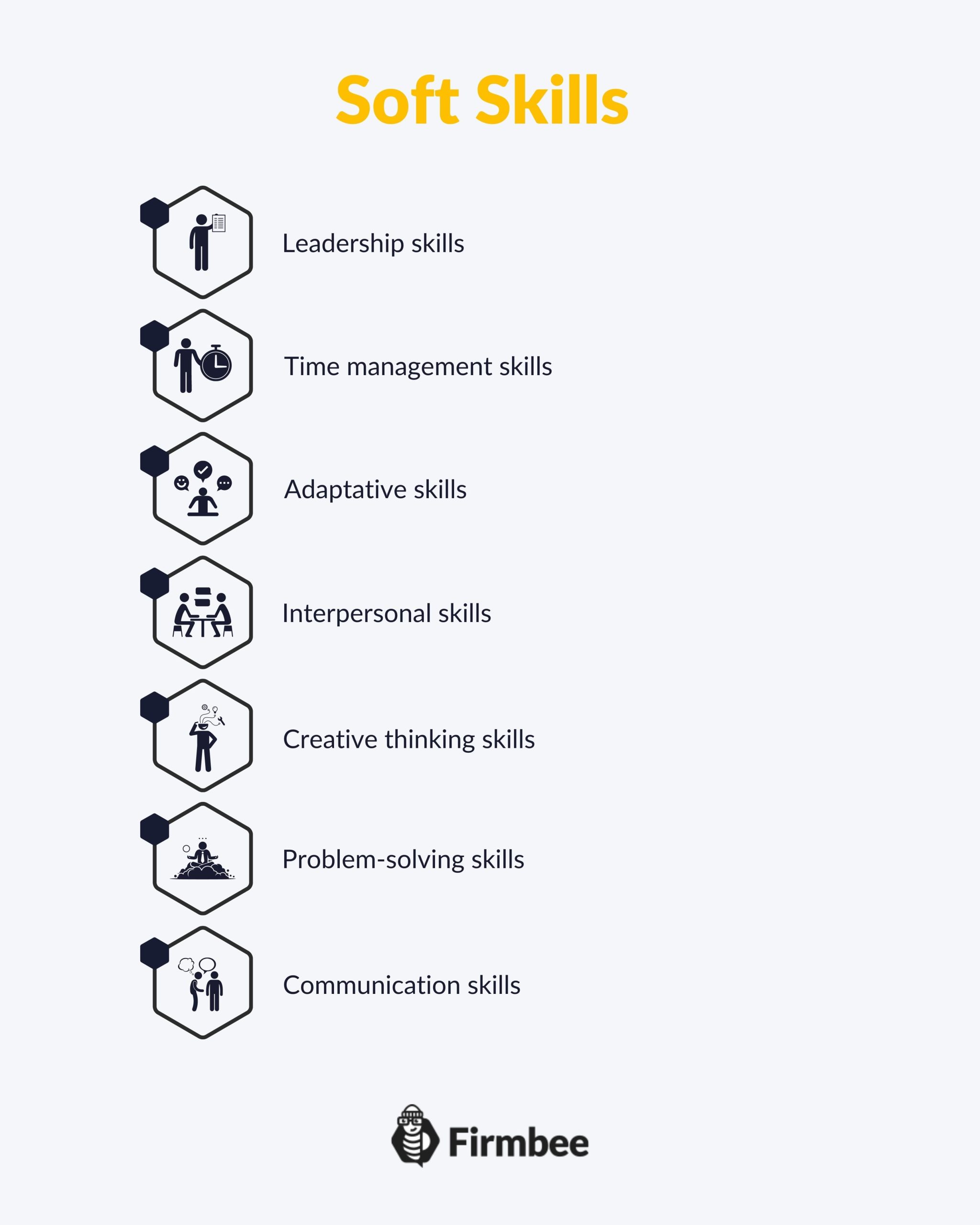Until recently it was believed that the highest importance has so-called hard skills that include: substantive knowledge, knowledge of foreign languages, technical training, or other measurable skills. Those skills were usually taken under consideration during the hiring process, granting pay rises or employing in managerial positions. From year to year, with the dynamic development of the labor market, more and more attention is being paid to soft skills that are represented by: features of the character that help with the achievement of both personal (individual) and business (workplace) goals. What are soft skills and what are the main reasons for the increase in the importance of those skills in the global job market?
Soft skills at work – table of contents:
- What are soft skills?
- Why the importance of soft skills is rising?
- Job market and increased competition
- Soft skills at the workplace – what else is important?
- Summary
What are soft skills?
Soft skills are connected to the features of the character, emotional intelligence, or interpersonal skills. The most important quality of soft skills is that they are not measurable – we are not able to find out if the given employee has the critical thinking skill developed to a certain level, the same as we can do with linguistic competencies. This quality influence the fact that frequently we diminish the value of our soft skills, while it should be done oppositely.
High interpersonal skills, the skill of self-presentation, ability to work in a group, diligence, accuracy – those features more and more of them are being searched for in the recruitment adverts and are being taken into consideration during processes in the Human Resources departments. Among many other examples of soft skills that are useful at work we may enlist as well: creativity, ability to adapt, sales abilities, or self-sufficiency. Moreover, the World Economic Forum in 2020 recognized 3 soft skills as the key qualifications of the employee, and those were: critical thinking, creativity, and problem-solving skills.
It is not possible to acquire soft skills at school and in college during the normal process of education. We are responsible for their development – all is done by making decisions and taking up the challenges. Soft skills can be developed (there is special personal development training for the persons interested in the development of soft skills), but it is more difficult in adulthood than in the youth, and more difficult than the acquisition of hard skills.

Why the importance of soft skills is rising?
Deloitte Access Economics indicated that by 2030 even 66 percent of all job positions will be constituted by professions that require well-developed soft skills. On what basis this indication was made? The answer to this question is easy – by observation of the changes in the job market arising from the dynamic development of technology. It is hard to hide, that technology changes the face of the economy and subsequently the labor market.
Artificial intelligence, automatization, and robotization are the processes that have a significant impact on the employee’s situation in the job market – mainly because those technologies take over some of the tasks typically performed by humans. It has to be pointed out that even though some of the processes performed by computers are done faster and equally efficient as the human being, they are not able to conclude from the results, and cannot reassure dissatisfied clients or cannot make an elevator pitch speech that makes the judges speechless.

Job market and increased competition
At the same time, it has to be considered that the competition in the job market is constantly growing. An increasing proportion of the population are the people that have graduated from college, have been on internships and underwent training, and participated in courses to acquire hard skills. Moreover, tendencies on the market show, that we rarely stay in the same employment for more than several years, because we search for a change, new challenges, or better working conditions.
All this translates into the fact that we frequently search for new employment, which means that we need to stand out from the crowd and show our soft skills – to present that we are better candidates than other applicants, even if our substantive knowledge and experience are on the lower level. The aforementioned rule works in both directions: lack of communicative skills or self-presentation skills, which are standardized soft skills – may stop us from showing our abilities during recruitment despite broad knowledge and extensive experience.
Soft skills at the workplace – what else is important?
How often have you thought that you are under great pressure? A month, maybe once a week, or maybe even every day – nowadays stress resistance is seen as one of the most important competencies of a candidate for the job posts. It can be linked with the ability to react quickly (problem-solving skills) and excellent organization of work, which is important in times of flexible contracts (time and place of working) and remote work rises.
How often in your work do you have to make research on the Internet to find important information? Everyday duties of lawyers and developers require such skills – even if in those two jobs hard skills play the major role. With permanent access to the Internet, people don’t have to keep all the knowledge in their heads and remember all the details and facts – many problems find their solutions on the web, all we have to be able to do is to search for them.
The ability to search for information is the next important soft skill of each job candidate. Without such basic skills, no serious work is possible nowadays, because most clerical and administrative positions require at least intermediate skills that allow efficient gathering of information.
Summary
Nowadays, in the era of frequent changes and rapid transformations less and less important are our hard skills while more and more important becomes our ability to function in a working environment, in a team, and adaptability to the working conditions.
The eagerness to broaden the knowledge, flexibility, interpersonal skills, self-presentation skill, ability to search for information, and other soft skills are the way to cope with difficult times. It is worth searching for the method of developing soft skills or improvement of them – this is the way to deal with constant technological changes and increased competition in the job market.
If you like our content, join our busy bees community on Facebook, Twitter, LinkedIn, Instagram, YouTube, Pinterest.
Author: Nicole Mankin
HR manager with an excellent ability to build a positive atmosphere and create a valuable environment for employees. She loves to see the potential of talented people and mobilize them to develop.


















